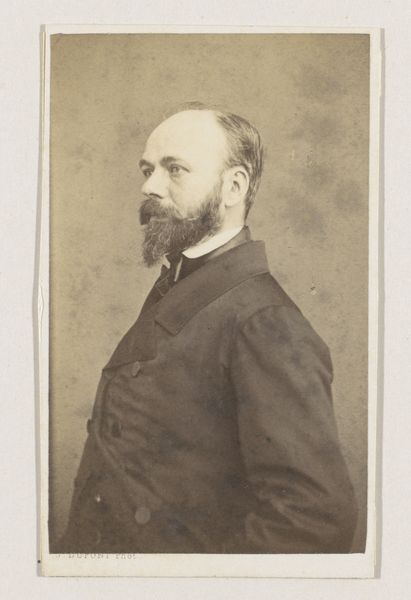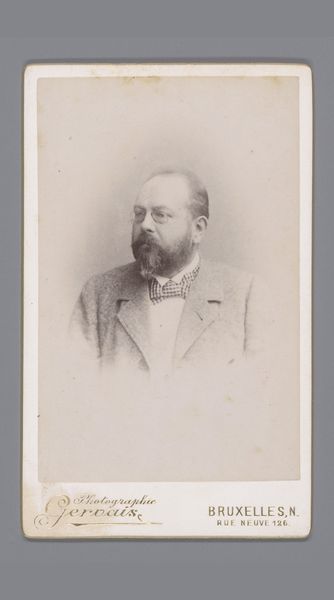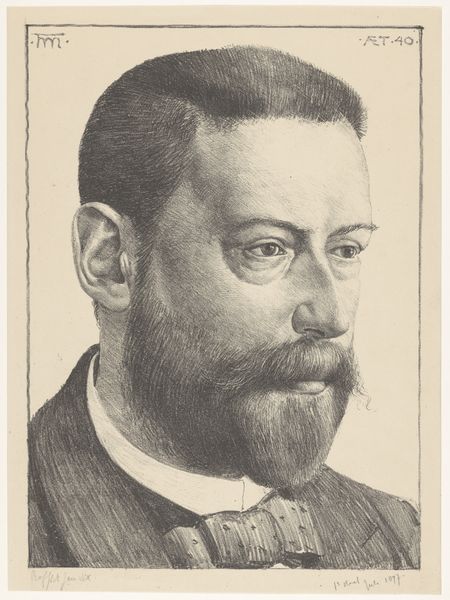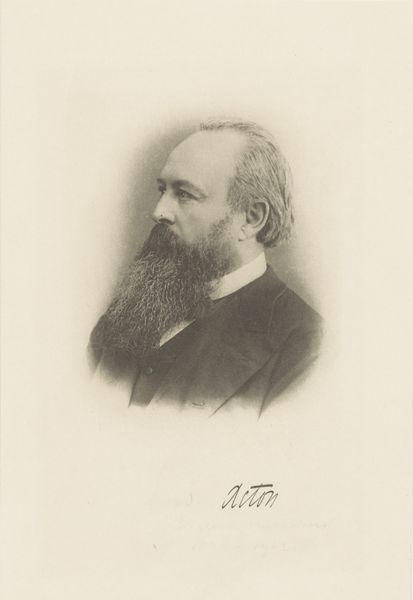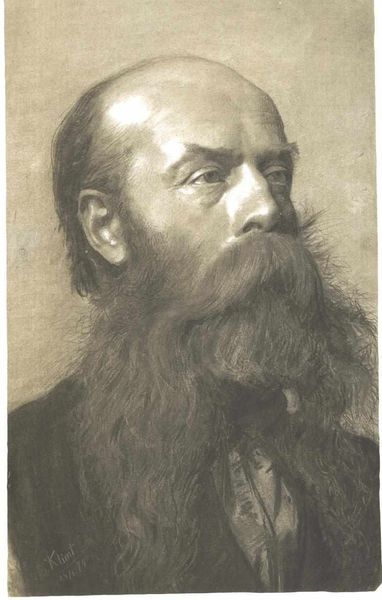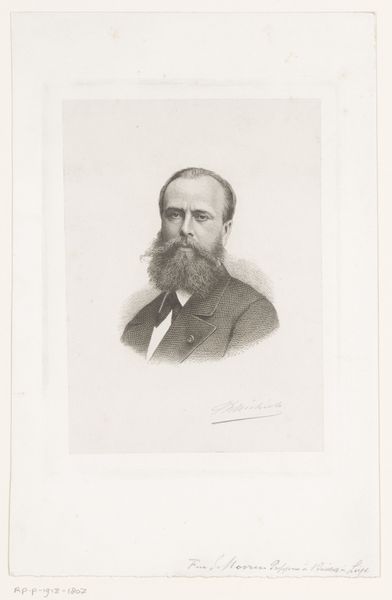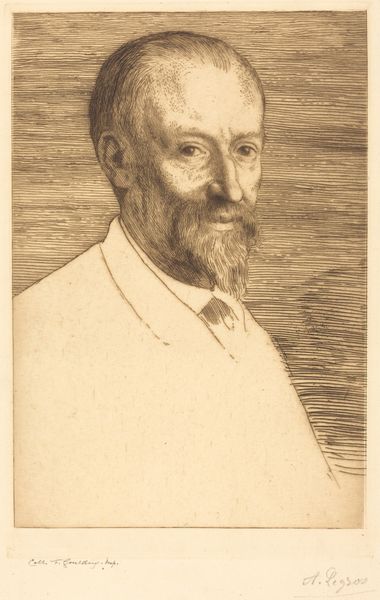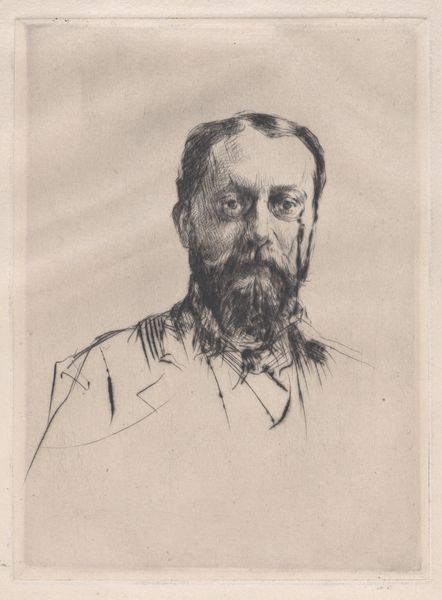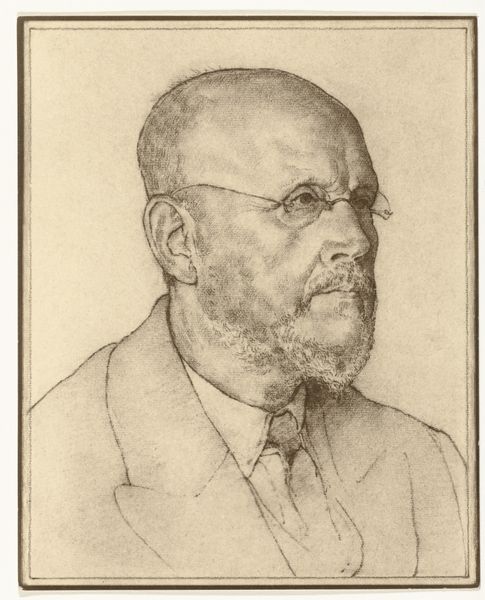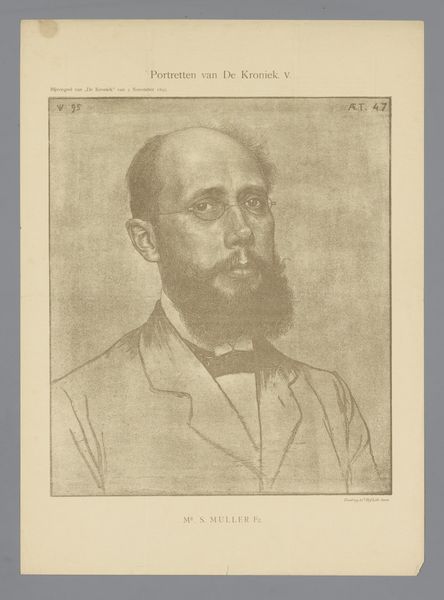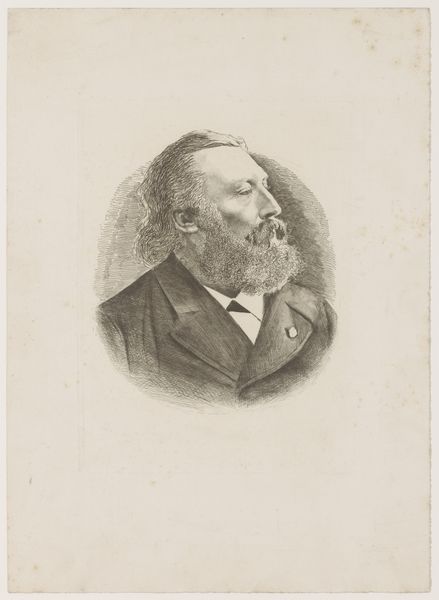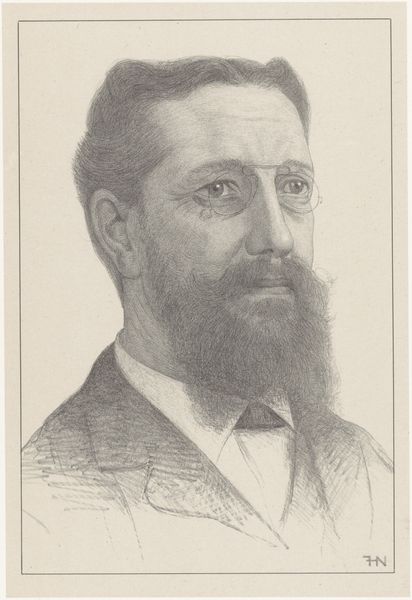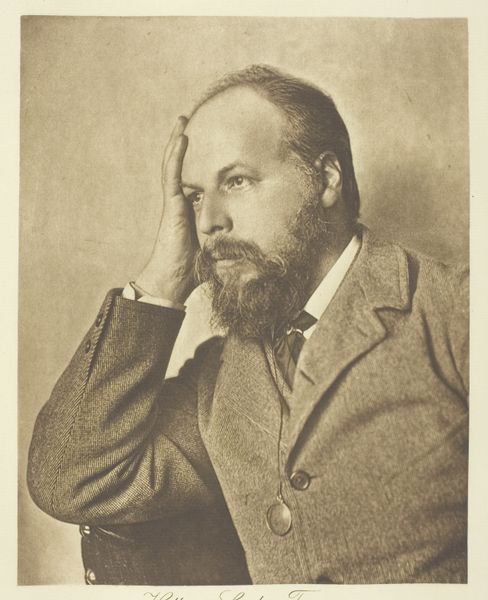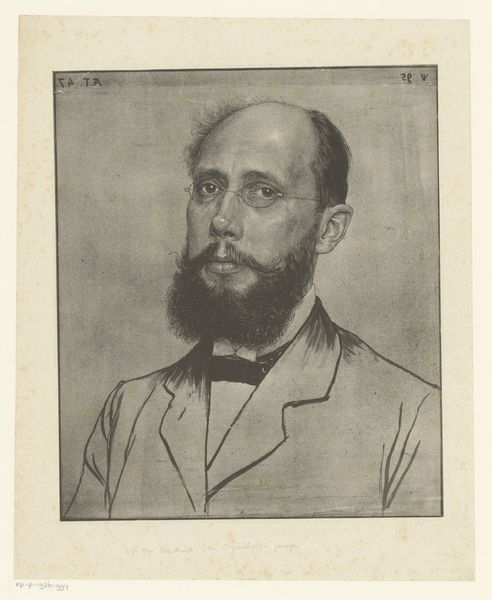
drawing, pencil
#
portrait
#
drawing
#
facial expression drawing
#
portrait image
#
portrait reference
#
pencil
#
animal drawing portrait
#
portrait drawing
#
facial portrait
#
academic-art
#
portrait art
#
fine art portrait
#
realism
#
celebrity portrait
#
digital portrait
Dimensions: height 320 mm, width 243 mm
Copyright: Rijks Museum: Open Domain
Curator: This is a pencil drawing titled "Portret van Martin Kalff" by Theo Molkenboer, likely created between 1881 and 1905. Editor: The starkness of the monochromatic medium emphasizes the detail, but also imparts a formality, a kind of stillness. His gaze is averted, lending an introspective mood. Curator: Portraits like this served an important function. They weren't simply about likeness; they solidified social standing, communicating respectability and projecting an image of civic virtue, especially within burgeoning bourgeois society. The very act of commissioning a portrait indicated a certain level of influence and prestige. Editor: Note how the meticulous cross-hatching defines the volumes of his face, from the gentle slope of his forehead to the weight of his beard. Observe the texture achieved purely through line and tone – it’s incredibly sophisticated in its simplicity. The contrast between the densely worked beard and the relatively untouched space of his brow is quite striking. Curator: And Kalff's choice of attire speaks volumes too. The formal suit and tie suggest a professional, possibly a businessman or academic. Molkenboer, through these sartorial choices, offers a glimpse into the subject's social identity and the aspirations associated with it. Editor: The composition adheres to classical principles; the subject centered, symmetrical, almost iconic. But is the intensity of the gaze quite meeting? The eyes almost lost among the lines; almost averted to suggest his inner complexity. Curator: Such pieces also often found their way into public institutions. This wasn’t only about individual recognition, but also about embedding a specific type of person, a model citizen perhaps, into the collective visual memory. Editor: I appreciate your viewpoint. To conclude, I find Molkenboer's deft hand imbues this portrait with psychological weight, revealing the subject through the language of pure drawing. Curator: And it stands as a visual testament to a particular era, reflective of how identities were constructed and circulated within a society increasingly aware of the power of image-making.
Comments
No comments
Be the first to comment and join the conversation on the ultimate creative platform.
